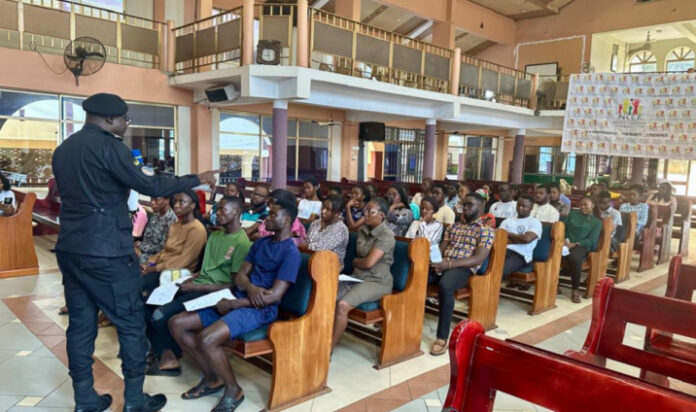The Oforikrom Municipal Director of the National Commission for Civic Education (NCCE), Rosina Owoo, has described corruption as one of the greatest obstacles to Ghana’s socio-economic development, stressing that it requires collective efforts to combat the menace.
She made the remarks at a youth engagement programme on “Rule of Law and the Fight Against Corruption” organised by the NCCE Oforikrom Directorate, with support from GIZ and the European Union (EU).
The event brought together 50 young people from the municipality to equip them with practical knowledge on the rule of law, civic rights, and legal frameworks that promote accountability and transparency.
Ms. Owoo noted that despite attempts by successive governments to tackle corruption, it continues to undermine progress.
“Corruption has a ripple effect on our economy and society. It denies citizens access to quality education, healthcare, infrastructure, and other essential services,” she said.
She identified common forms of corruption such as bribery, nepotism, embezzlement, extortion, facilitation payments, and fraud, urging participants to resist engaging in such practices.
She further stressed that fighting corruption requires grassroots involvement, calling on young people to be ambassadors of transparency and accountability in their communities.
Chief Superintendent Fred Hammond, KNUST Divisional Police Commander, reminded participants to balance their civic rights with civic responsibilities as outlined in the 1992 Constitution. He urged them to report wrongdoing in their communities and work with law enforcement to prevent crime.
Mr. Charles Alex Quainoo, Chief Investigator at the Commission on Human Rights and Administrative Justice (CHRAJ) in the Ashanti Region, educated the youth on the Whistleblowers Act (Act 720), describing it as a powerful tool for exposing corruption. He explained that the law protects whistleblowers from victimization while empowering them to disclose acts of impropriety.
Source: GNA
ALSO READ:



